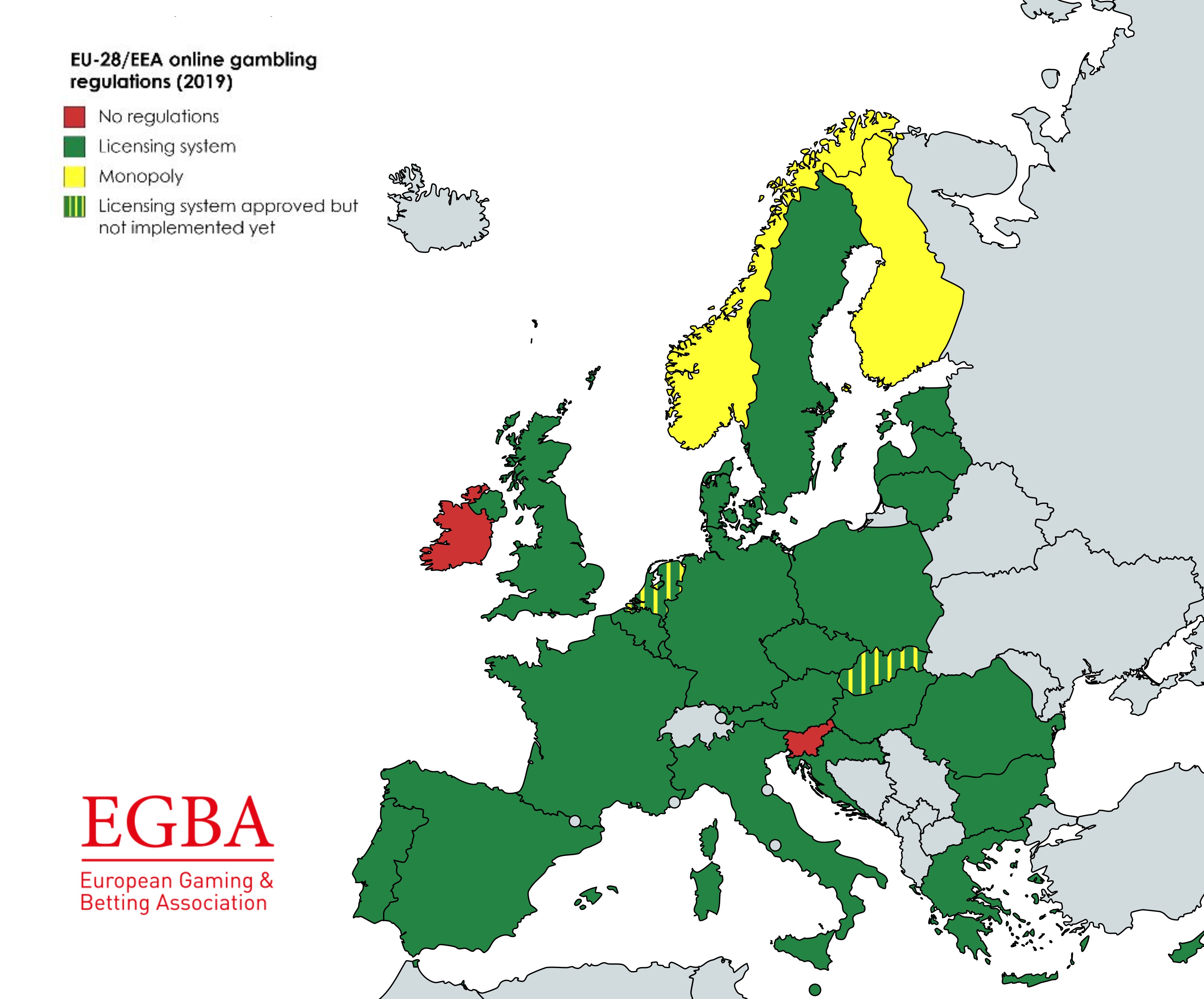Online Gaming Laws
Gambling Law: An Overview
Gambling, though widespread in the United States, is subject to legislation at both the state and federal level that bans it from certain areas, limits the means and types of gambling, and otherwise regulates the activity.
- Payment Methods Gaming Software Gaming Site Owners Gaming Jurisdictions Online Casino City offers objective popularity ranks for 4,170 online casinos and gambling sites. Based on independent monitoring of millions of online users we determine the most popular online casino, poker, bingo, sportsbook, backgammon and skill game sites.
- The federal Indian Gaming Regulatory Act, 25 U.S.C. § 29 (2000), governs gambling activity on Indian reservations, but the extent to which it and other federal gambling laws preempt state action in the Internet arena is uncertain.
- Legal Online Gambling. The 1990s brought internet gaming to Americans, making it convenient to play at home. Online casinos offer all the classics, like roulette, craps, blackjack, poker, slots, and video poker. Only a handful of states have legal online gambling regulated at the state level. Expansion of Online Gambling Laws Throughout the States.
Online Gaming Laws In India
Congress has used its power under the Commerce Clause to regulate interstate gambling, international gambling, and relations between the United States and Native American territories. For example, it has passed laws prohibiting the unauthorized transportation of lottery tickets between states, outlawing sports betting with certain exceptions, and regulating the extent to which gambling may exist on Native American land.
Each state determines what kind of gambling it allows within its borders, where the gambling can be located, and who may gamble. Each state has enacted different laws pertaining to these topics. The states also have differing legal gambling ages, with some states requiring the same minimum age for all types of gambling, while for others, it depends on the activity. For example, in New Jersey, an 18-year-old can buy a lottery ticket or bet on a horse race, but cannot enter a casino until age 21. Presumably, the age 21 restriction is due to the sale of alcohol in that location.
Sep 03, 2020 Online casinos and operators still accept American players. And international financial parties have continued to process their transactions. The legality is always changing and there have been attempts to declare online wagering against the law, but for now, U.S. Citizens who simply place bets online are in the clear. Gaming law is the set of rules and regulations that apply to the gaming or gambling industry. Gaming law is not a branch of law in the traditional sense but rather is a collection of several areas of law that include criminal law, regulatory law, constitutional law, administrative law, company law, contract law, and in some jurisdictions, competition law.
A standard strategy for avoiding laws that prohibit, constrain, or aggressively tax gambling is to locate the activity just outside the jurisdiction that enforces them, in a more 'gambling friendly' legal environment. Gambling establishments often exist near state borders and on ships that cruise outside territorial waters. Gambling activity has also exploded in recent years in Native American territory. Internet-based gambling takes this strategy and extends it to a new level of penetration, for it threatens to bring gambling directly into homes and businesses in localities where a physical gambling establishment could not conduct the same activity.
Internet Gambling

Federal Regulation
In the 1990s, when the World Wide Web was growing rapidly in popularity, online gambling appeared to represent an end-run around government control and prohibition. A site operator needed only to establish the business in a friendly offshore jurisdiction such as the Bahamas and begin taking bets. Anyone with access to a web browser could find the site and place wagers by credit card. Confronted with this blatant challenge to American policies, the Department of Justice and Congress explored the applicability of current law and the desirability of new regulation for online gambling.
In exploring whether an offshore Internet gambling business taking bets from Americans violated federal law, attention was focused on the Wire Act, 18 U.S.C. § 1084 (2000). The operator of a wagering business is at risk of being fined and imprisoned under the Wire Act if the operator knowingly uses a 'wire communication facility' to transmit information related to wagering on 'any sporting event or contest.' 18 U.S.C. § 1084(a). An exception exists if that act is legal in both the source and destination locations of the transmission. § 1084(b). The Wire Act’s definition of “wire communication facility” appears to embrace the nation's entire telecommunications infrastructure, and therefore probably applies to online gambling. See § 1081.
The Department of Justice maintains that, under the Wire Act, all Internet gambling by bettors in the United States is illegal. U.S. House of Representatives Committee on the Judiciary Hearing on Establishing Consistent Enforcement Policies in the Context of Online Wagers, 110th Cong., Nov. 14, 2007 (testimony of Catherine Hanaway, U.S. Attorney (E.D. Mo.), Dept. of Justice). The Fifth Circuit disagreed, ruling that the Wire Act applies only to sports betting, not other types of gambling. In re MasterCard Int’l Inc., 313 F.3d 257 (5th Cir. 2002).
In 2006, Congress passed the Unlawful Internet Gambling Enforcement Act, which made it illegal for wagering businesses to knowingly accept payment in connection with unlawful Internet gambling (though it does not itself make Internet gambling illegal). 109 Pub. L. 109-347, Title VIII (Oct. 13, 2006) (codified at 31 U.S.C. §§ 5301, 5361–67). It also authorizes the Federal Reserve System to create regulations that prohibit financial transaction providers (banks, credit card companies, etc.) from accepting those payments. See 31 U.S.C. § 5363(4). This Act, along with threats of prosecution under the Wire Act from the Department of Justice, has caused several Internet gambling businesses to withdraw from the U.S. market.
In response, House Representatives introduced multiple bills in 2007 to soften federal Internet gambling law. If passed, the Internet Gambling Regulation and Enforcement Act and the Internet Gambling Regulation and Tax Enforcement Act would license, regulate, and tax Internet gambling businesses rather than prohibit them from taking bets from the United States. Alternatively, the Skill Game Protection Act would clarify the Wire Act to exempt certain games such as poker and chess.
State Regulation
In addition to federal measures, some states have enacted legislation to prohibit some types of Internet gambling. In 2006, Washington State amended its Code to make knowingly transmitting or receiving gambling information over the Internet a felony. See Wash. Rev. Code § 9.46.240 (2006). Other states with similar prohibitions have made it a misdemeanor instead. See e.g., 720 ILCS 5/28-1 (2007).

States have not been particularly active in enforcing these laws, possibly due to a conflict with the dormant Commerce Clause doctrine. That doctrine theorizes that state law applying to commerce outside the state’s borders is unconstitutional because that power lies with federal, not state, government. In particular, federal preemption has obstructed states’ attempts to regulate gambling activity on Indian reservations within state borders. See Missouri ex rel. Nixon v. Coeur D’Alene Tribe, 164 F.3d 1102 (8th Cir. 1999). The federal Indian Gaming Regulatory Act, 25 U.S.C. § 29 (2000), governs gambling activity on Indian reservations, but the extent to which it and other federal gambling laws preempt state action in the Internet arena is uncertain.
menu of sources
Federal Material
U.S. Constitution and Federal Statutes
- U.S. Code: Title 15, Chapter 24: Transportation of Gambling Devices
- U.S. Code: Title 15, Chapter 57, Interstate Horseracing
- U.S. Code: Title 18, Chapter 50: Gambling
- U.S. Code: Title 18, Chapter 61: Lotteries
- 18 U.S.C. §1953 (Interstate Transportation of Wagering Paraphernalia Act)
- 18 U.S.C. §1955 (Illegal Gambling Business Act of 1970)
- 25 U.S.C. §§2701-2721 (Indian Gaming Regulatory Act)
- U.S. Code: Title 28, Chapter 178: Professional and Amateur Sports Protection
- Code of Federal Regulations: Title 25, Chapter 3: National Indian Gaming Commission, Department of the Interior
- Proposed Internet Gambling Prohibition Act of 1997 (not passed)
Federal Judicial Decisions
- Greater New Orleans Broadcasting Association, Inc. v. United States, 527 U.S. 173 (1999)
- Ratzlaf v. United States, 510 U.S. 135 (1994)
- Chickasaw Nation v. United States, 534 U.S. 84 (1999)
State Material

Other References
Michigan Online Gaming Laws
- '14 Charged in Internet Betting' (Washington Post, March 5, 1998)
Online Gambling Laws
- wex
Online Gaming Laws Australia
Thousands of Americans gamble online. But is online gambling legal? We break it down to show you what you can do, what you can't do, and what's still up in the air.
by Katherine Butler
updated September 03, 2020 · 2min read
The legality of online gambling is ever-changing. But one thing is constant: it makes a lot of money. Online gambling industry makes an estimated $1 billion dollars annually. This is a huge business, and a lot of people have cashed in on it. But it has led to some ambiguous legal issues, as the legality of online gambling is constantly being challenged.
There are differences in the legality of making bets, taking bets, facilitating payments to casinos, and advertising on websites. And there are constantly new legal challenges. So here is a breakdown of the law on online gambling.
Legal Forms of Gambling
There is no federal law against placing a wager online. So, you can legally place a bet online. However, a wager must not be placed on a site located in the United States. There is a small chance players might run afoul of state law, but there is little chance of prosecution. The only case cited where a person got into trouble with a state was in 2003. Jeffrey Trauman of North Dakota paid a $500 fine on over $100,000 of online sports bet winnings.
Sites that are set up outside of the United States are legal. Therefore, gambling on websites located in areas like Australia, the Caribbean, and Latin America is legal. Just be very clear that the site you are playing on is not based on U.S. soil.
Definitely Not Legal Forms of Gambling

It is never legal to gamble on a website based in the United States. Also, if you are planning to operate an online gambling site, stay outside of the United States. You must also deal only with casino and poker wagers (not sports bets) from people in the US. And you cannot take bets over the phone from people in the United States.
Online Gambling Laws Georgia
Accepting online gambling advertising is also illegal. If you are a small publisher, you are less likely to be prosecuted, but why risk it? As of early 2009, only large and mid-size publishers had faced prosecution. In 2007, the three big search engines (Google, Yahoo, and Microsoft) each paid a fine for accepting online gambling ads, but did not face criminal charges. Other publishers, such as Esquire Magazine, have been warned by the government not to take online gambling advertising.
Online Gambling Laws Florida
Facilitating the transfer of funds to online casinos is also a bad idea. As of 2006, it became illegal for American banks to process transactions originating from or directed toward any online gambling operator. Because of this, several sites then refused to take bets from American players. But as the law seems difficult to enforce, it has not turned the tide completely for American players.
Still up in the Air

Advertisers who promote sports books in magazines and on billboards may or may not face prosecution. So far, sports books have never been scrutinized for advertising online. And online casinos, poker rooms, and sports books have never been prosecuted for buying ads.
Online casinos and operators still accept American players. And international financial parties have continued to process their transactions. The legality is always changing and there have been attempts to declare online wagering against the law, but for now, U.S. citizens who simply place bets online are in the clear.